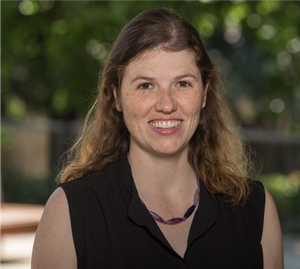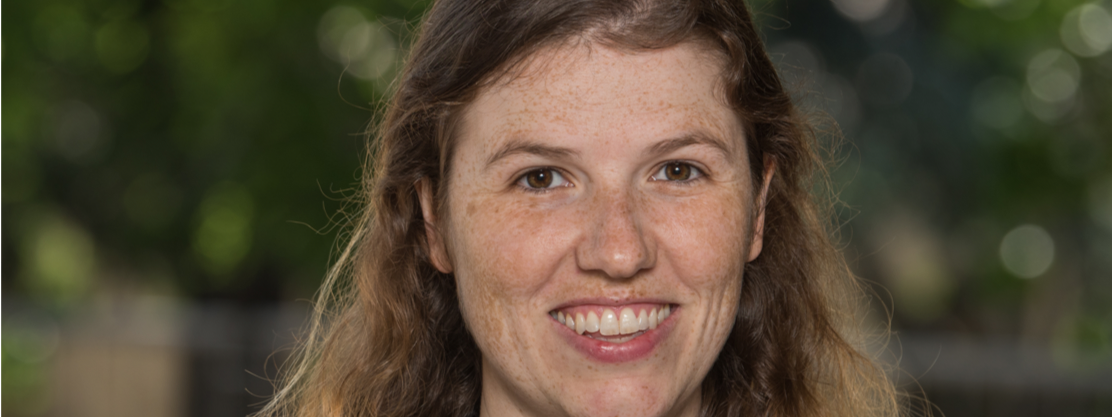
Dr. Morgan O’Neill joined the Department on January 1, 2024.
Welcome to U of T Physics Dr. O’Neill!
Can you provide a brief introduction to yourself, including your academic background and area of research?
I study atmospheric dynamics, with a focus on how moist thermodynamics influences the structure and strength of storms. I am interested in how different climates serve as boundary conditions on severe storms of all types, and how these storms can feed back on climate change. I tend to work on smaller, storm-scale aspects of these questions, because I am particularly interested in highly nonlinear, unbalanced flows. My group uses a combination of theory and numerical modeling to probe storm evolution and impact on the larger environment.
I have a B.S. in Physics from the University of New Hampshire, and a Ph.D. in Atmospheric Science from the Massachusetts Institute of Technology. I was a Koshland Prize postdoctoral fellow at the Weizmann Institute of Science and then a T. C. Chamberlin postdoctoral fellow at the University of Chicago, before joining the Stanford faculty in the Department of Earth System Science in 2018.
Could you share some details about your current research interests and any specific projects you are working on?
My group has had some smaller-scale field campaign involvement in the past, with research planes that fly through hurricanes. This summer, I will be part of a North American team led by Dr. Allison Wing at Florida State University that will participate in a large multinational field campaign. The ORCESTRA campaign, delightfully, has components such as MAESTRO, CELLO and PERCUSSION. We North Americans are part of PICCOLO, a small but mighty contribution of Colorado State University's dual-polarized SEA-POL radar dish. SEA-POL will be installed on a German research vessel to probe the structure of precipitation in the North Atlantic InterTropical Convergence Zone, and what that means for convective self-organization, structure and efficiency.
I am also looking forward to continuing recent research into the hydraulic jump that forms above certain supercell thunderstorms in regions like the Great Plains. The possibility of hydraulic control occurring within a fluid (the atmosphere) due to itself is very cool, and has the potential to be at least locally relevant to climate feedbacks. I hope to extend study of this extreme feature to wildfire storms (pyrocumulonimbus) and hurricanes. Finally, some summer students will help me go back to some of my doctoral research into polar vortices on giant planets. We hope to help community efforts to understand why Jupiter has "vortex crystals", packed polygonal structures of cyclonic storms, fixed rigidly at each pole. It's wacky and we'll throw some supercomputing time at it.
Are there any lessons from your own academic journey that you would like to share?
I recommend that students be their whole selves and live a full life alongside pursuing academia or private or public sector goals. It's not worth putting other parts of your brain and heart on hold while you sprint toward some professional goal single-mindedly. Your life is already happening to you! Wear several hats; stay close with circles that can't parse your abstract; volunteer; exercise; have a family if you want. It's all great. The passage of time permits no do-overs, so if you want several lives you need to live them all simultaneously. I chose to stay in academia because it's the best possible fit for me in a lot of dimensions. I opt-in every day. Find your fit, and demand that it has the balance you need to be happy.
What drew you to join our department, and what aspects do you find most appealing or unique?
I am so, so thrilled to be here. I'm excited to be back in a physics department, which is such a natural, though unusual, home for climate science. When I was an undergraduate studying physics and astronomy, I remember walking by myself around campus, surveying all the other students headed to class, and thinking, "those students are probably studying something reasonably interesting, but I am studying the secrets of the universe". The idea that I could be permitted to learn the secrets of the universe was just so compelling to me as a driver for education. And it still is a ridiculous privilege. I look forward to learning these secrets from you all.
I think the cohort model of admitting graduate students and letting them arrive and figure out what they really want to do, is equitable and good for science. And the range of summer research programs is great - it looks like I'll have three research students this summer! I also have enjoyed getting to know my EAPP colleagues and see a ton of possibilities for collaboration on some exciting questions in the future. So far, I have experienced a very warm and supportive welcome as I move my family from the States to Toronto. It has been a wonderful and affirming couple of months already and I am very grateful for the opportunity to be here.

